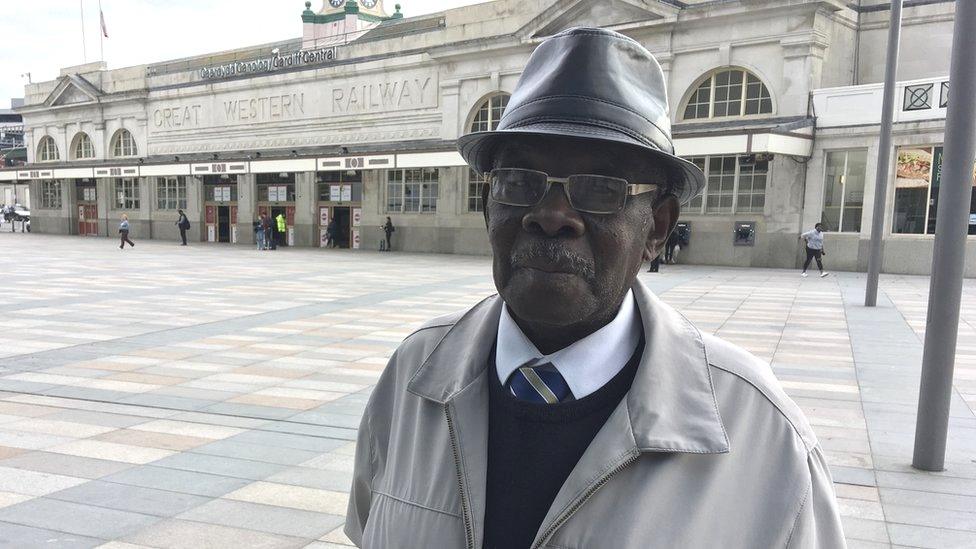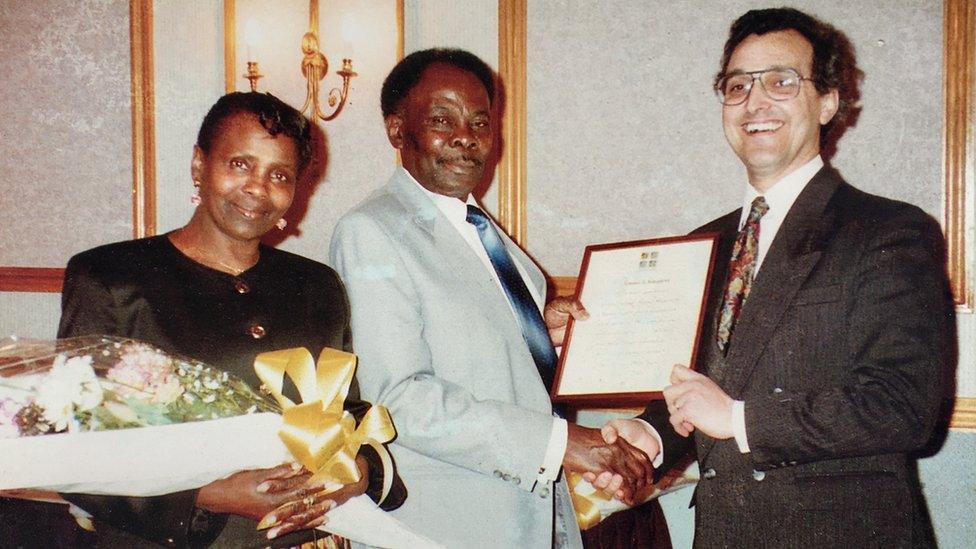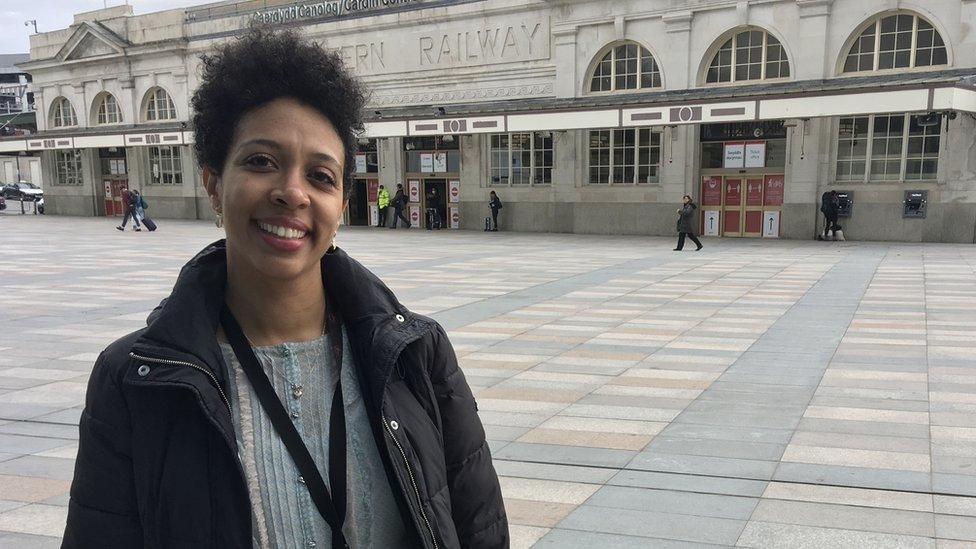Black History Month: Covid lessons from Windrush generation
- Published
The Windrush generation can help us cope with Covid, says migrant's granddaughter
The Windrush generation can help teach us how to cope with being separated from loved ones during the coronavirus pandemic, according to the granddaughter of a Jamaican migrant.
Percy Hanniford, 91, settled in Wales after arriving in the UK by boat in 1961 and spent his entire career working on the railway.
Now Percy's granddaughter, Celia Enyioko-Hanniford, also a rail worker, has said the pandemic can help people appreciate the sacrifice made by the Windrush generation because they too have been deprived of seeing their families.
They have spoken to BBC Wales as part of our coverage of Black History Month.
After arriving in Wales, Percy lived on Swansea Street in Splott, Cardiff, and answered an advert in the paper for a "learner goods guard" at British Rail.

Percy spent his 30-year career moving passengers and freight around the UK
"Every moment of it, I enjoyed," he recalled. "You become attached to the job, and you get to know the job, so you like the job. I would do it again and again and again."
He spent the rest of his 30-year career moving passengers and freight around the UK as a shunter, supervisor chargeman and goods guard.
People arriving in the UK between 1948 and 1971 from Caribbean countries have been described as the "Windrush generation".
A look back at life when the Windrush generation arrived in the UK
The term refers to the ship MV Empire Windrush, which docked in Tilbury on 22 June 1948, bringing workers from Jamaica, Trinidad and Tobago and other islands to help fill post-war UK labour shortages.
But far from the prejudice some received in the UK, Percy said his love for his adopted country and the "very friendly people" of Wales grew as the years went on.
He said: "Put it this way, when I came to Cardiff there weren't much black people, I tell you. So when you see black people, they get on with you, you get on with them.
"Talking about prejudice and colour barred, I didn't come up against those things - never in my life."
A "colour bar" was a rule where black, Asian and minority ethnic people were denied access to the same rights, opportunities and facilities as white people.

Percy, pictured at his retirement party, says he has never experienced racism or prejudice during his life in Wales
Percy's enthusiasm for the railway passed to his granddaughter Celia, who said she was "proud to be following in his footsteps" by working for Transport For Wales.
Celia said she believed people today would be more able to relate to what the Windrush generation had to endure, because so many had been deprived of seeing their families during the pandemic.

Percy's granddaughter Celia believes people today will be able to relate to what the Windrush generation went through
"People travelled, maybe they left behind a partner, a spouse, they left behind children," she explained.
"And I know in my grandad's case he did leave behind a family, and as he worked really hard and made money and got himself established, he would send for his children until all the family were together.
"So I think - particularly now in the middle of this pandemic - people can appreciate what that feels like."

You may also be interested in:

While Celia said racism had never been an issue for her, "we can't underestimate or dismiss that it's there".
"What we have now is that some of those things have just changed, and maybe they're not as noticeable," she added.
"But we must not dismiss that, and for the people that impacts on, perhaps people who look like me, it's still very much there."
- Attribution
- Published12 October 2020
